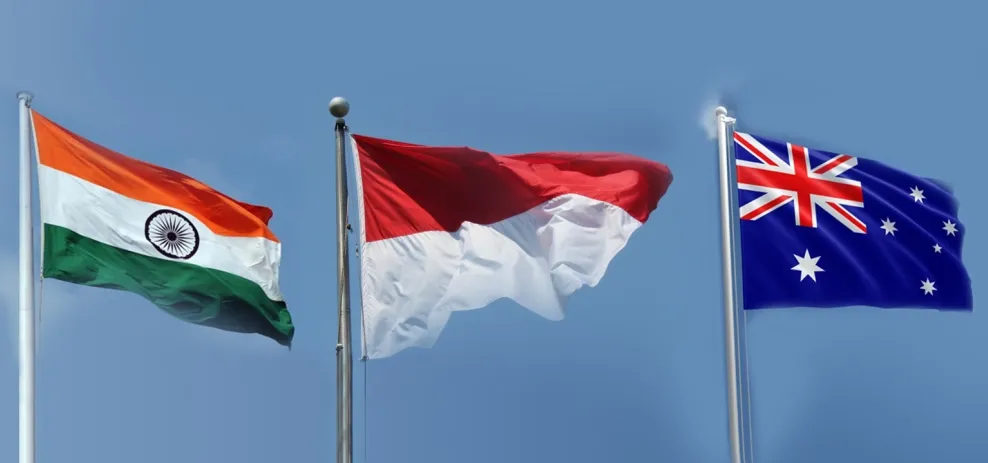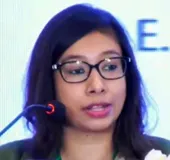
The Australia-India-Indonesia trilateral foreign ministers meeting took place along the sidelines of the 77th session of the United Nations General Assembly (UNGA 77) in New York. This was the first in-person meeting of this trilateral grouping and has been in the pipeline for a long time. In September 2020, the foreign ministers of the three countries were to hold a virtual meeting which was to be followed by a defence ministers’ meeting of the three countries as well. In New York, the foreign ministers discussed the prospects of strengthening cooperation in the framework of the Indian Ocean Rim Association (IORA), Indo-Pacific, G20 and the blue economy. For so long, this trilateral grouping remained confined to the level of the Senior Officials Meeting (SOM), but with this meeting, it has now been elevated to the ministerial level.
The Indo-Pacific provides a vast array of opportunities for cooperation and this is reflected in the emergence of several minilaterals and plurilaterals, which bring together countries with shared visions and interests looking to strengthen partnerships on particular issues and agendas. Australia and India had, therefore, been pushing to elevate this trilateral to the formal ministerial level, but there was hesitation from the end of Indonesia. This was mainly because Indonesia did not wish to be a part of any grouping which would send out a wrong message to China, which is one of its primary trading partners and is also financing a lot of infrastructure development projects in the country, such as the Jakarta-Bandung rail network. Another reason has been the strained Indonesia-Australia relations in the past. Though this bilateral relationship has come a long way, some hesitation from Indonesia’s end remains. Indonesians also believe that when it comes to further cementing ties with countries like India and Australia, it is already happening at a good pace at the bilateral level. Even amidst COVID-19, there have been high-level visits from Indonesia to India, for instance, the three-day visit of the Indonesia Defence Minister, General Prabowo to India in July 2020. Therefore, there is no need to be a part of any specific grouping to enhance further ties with India and Australia. Additionally, given that Australia and India are both members of the Quad, which is primarily seen as a grouping comprising the United States, Australia, Japan, and India to deal with the growing Chinese threat, there was the impression that elevating this trilateral would again give out the signal that Indonesia too is taking sides here. Furthermore, Indonesia is regarded as the ‘primus inter pares’ in the ASEAN and has always been seen as a forerunner in carrying forward the goals of multilateralism. Whenever Indonesia has assumed the chairmanship of a multilateral body, be it the ASEAN, or the IORA it has always tried to give out the impression that it aims to bring all the countries together and that multilateralism is the best way to boost cooperation. Multilateral platforms, even if divided and ‘not so successful’ are the best medium to discuss issues and draw up solutions. This was seen with Indonesia hosting the first-ever IORA Leaders Summit in 2017, during its chairmanship. Therefore, if given a choice, Indonesia would prefer to vouch for multilateral institutions over minilateral and plurilateral platforms even if these have been growing exponentially in the Indo-Pacific region. Even in the trilateral foreign ministers’ meeting, Indonesia stressed strengthening cooperation under frameworks such as G20 and the IORA. This shows that even if Indonesia is a part of such minilateral groupings, the focus on multilateral institutions will always be predominant in its foreign policy.
Given that Australia and India are both members of the Quad, which is primarily seen as a grouping comprising the United States, Australia, Japan, and India to deal with the growing Chinese threat, there was the impression that elevating this trilateral would again give out the signal that Indonesia too is taking sides here.
This meeting reflects that Indonesia is beginning to shed away its averseness of joining such groupings. This can be because there is a growing realisation that these platforms do not always necessarily deal with traditional security issues and are also broadening their gambit by looking at non-traditional security issues. Indonesia has also recently joined the Indo-Pacific Economic Framework (IPEF) and this is because even if China is a noteworthy trading partner, Indonesia is also looking to diversify in the economic and trading realm. Besides this, there has been growing distrust amongst Indonesians about China. This is mainly due to the growing concern that the Chinese are taking over local jobs. Thereby, the government has also realised that there is a need to diversify its partnerships and the initial steps have been taken with Indonesia joining the IPEF and with the trilateral foreign ministers’ meeting.
Agenda of the trilateral
As mentioned above, the trilateral is looking to focus on the G20, the IORA, Blue Economy, and the Indo-Pacific. With Indonesia currently holding the presidency of the G20 and the upcoming G20 summit in Bali in November 2022, it is only logical that the G20 would feature in this meeting. With India set to take over the presidency in December 2022, it will be helpful for India to learn from Indonesia’s experience and discuss the initiatives and projects started by Indonesia, which the former can carry forward. Indonesia’s presidency period saw a lot of challenges, especially the Russia-Ukraine war, which led to the country dealing with a lot of stumbling blocks, especially in getting most European countries to attend meetings of the G20. The Indonesian President, Joko Widodo, conducted a series of trips overseas. It was a week-long visit to Germany, Ukraine, and Russia, ending in the United Arab Emirates (UAE). In his visits, he highlighted how the conflict exacerbated the food and energy crisis and sought ways to abate those issues.
With India set to take over the presidency in December 2022, it will be helpful for India to learn from Indonesia’s experience and discuss the initiatives and projects started by Indonesia, which the former can carry forward.
Being Indian Ocean littorals, the three countries can work in areas like marine governance and maritime diplomacy in the Indian Ocean. Most discussions of maritime security only look to focus on traditional security aspects and issues like marine governance, marine safety and security take the back seat. However, currently, discussions on the blue economy are gaining momentum. The Indian Ocean faces a lot of climate-induced challenges, such as quick depletion of marine resources, and natural disasters, and therefore, there is a lot of potential to work on these areas in the trilateral platform and also on the platform of the IORA with the three countries taking the lead. India needs to get more countries on board, especially the IORA member countries in its Indo-Pacific Oceans Initiative (IPOI), and Coalition for Disaster Resilient Infrastructure (CDRI) and towards this end, Indonesia and Australia who are already a part of both these initiatives can work with India. The two countries can help promote the IPOI and CDRI with India on the platform of the IORA. Marine governance can be the starting point, and then other avenues such as maritime domain awareness; coast guard training, diplomacy exercises; and maritime infrastructure development, especially in Indonesia, can be initiated as well.
The Australia-India-Indonesia trilateral can prove to be a really effective one in the Indian Ocean Region and the wider Indo-Pacific. It is indeed a positive development that Indonesia has come on board and the foreign ministers’ meeting has taken place, but both Australia and India will need to keep up the momentum and push for more meetings in the future. India and Australia will need to map out proper focus areas, especially in the maritime, economic and trade, climate change, and green energy sectors, among others, which will keep the interests of the Indonesians high so that this meeting does not end up being just a ‘one-time occurrence’.
The views expressed above belong to the author(s). ORF research and analyses now available on Telegram! Click here to access our curated content — blogs, longforms and interviews.




 PREV
PREV


